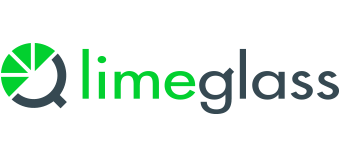Personalised Research Suggestions
- Problem Solved: Research suggestions are too wide or too limited based on available document tags.
- Client Benefits: Enriched document tagging allows more granular categorisation of research and therefore of suggestions.
- Post-Publication: Simply add Limeglass as a regular recipient of your research and get access to Limeglass’s enormous financial ontology of tags, allowing you to make your research suggestions more relevant to clients.
- Document Level Tags: Limeglass expands the number of highly relevant tags associated with your research documents, allowing useful suggestions for documents with similar tags.
- Ingestion & Atomisation
- Post-Publication
- Automatic Tagging
- Document Level Tags
- Output
- API
- Client Type
- Advisory Operations
- Where does the Client use it?
- Smart Marketing
Give clients relevant results when sending them suggestions for research you think they should read.
Limeglass can give you the suggestive power of Spotify!
Consumer platforms like Amazon, Spotify, and Netflix have, for a long time, been very good at making relevant suggestions to their users for new content to consume or new goods to buy, based on their previous usage and consumption habits. Sell Side Research providers have not yet been able to replicate the quality of these suggestions.
When confronted with a hyperlink that says “Based on your interests, you may want to read…”, most consumers of Sell Side Research know that they are likely to be shown other reports on the same stock, same currency, same asset class, or perhaps just to other reports written by the same author. In certain cases, this might be enough, but it does not unlock the same cross-selling power that Spotify achieves when it uses all sorts of data to suggest a new song.
Limeglass is here to change that for the Sell Side.
Using its gigantic financial ontology (which now comprises over 150,000 tags), Limeglass dramatically expands the number of tags attributed to any given document. In comparison to the tags normally generated by a Sell Side publisher, Limeglass typically returns at least 10x as many (and sometimes that could even be more than 50x) by analysing the contents of the document.
You need better data to make useful suggestions
The expanded set of Limeglass-generated tags includes things that the Sell Side is mostly unable to capture, such as themes.
An analyst’s Japan Economics report that talks about the effects of Industrial Automation on the labour force will be able, under existing Sell Side systems, to suggest that people interested in that report should read more by the same analyst, or perhaps more about Japanese Economics (these are fairly easy tags to capture simply from document templates).
But it is only with Limeglass that an interested reader might also be prompted to click through to more content about ‘Automation’ or the ‘Labour Market’ as themes (tags which can only be captured through an understanding of the contents of the document).
Furthermore, it is not just the massive expansion of available tags that Limeglass provides: it is also the ‘Coverage’ metrics that accompany these tags.
While most tagging systems allow only for binary tags, Limeglass provides the Coverage to show how much of a document is relevant to the tags it finds. A single reference to ‘Quantitative Tightening’ in the aforementioned Japan Economics document, therefore, would be given only a low Coverage score, meaning that it could easily be ignored. The ‘Automation’, ‘Labour Market’, ‘Japan’, and ‘Economics’ tags, however, would all get high coverage scores, and would therefore not be ignored. The suggestion system could therefore prioritise highlighting ‘Automation’ related suggestions over ‘Quantitative Tightening’ suggestions (or indeed could simply remove the latter).

